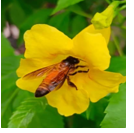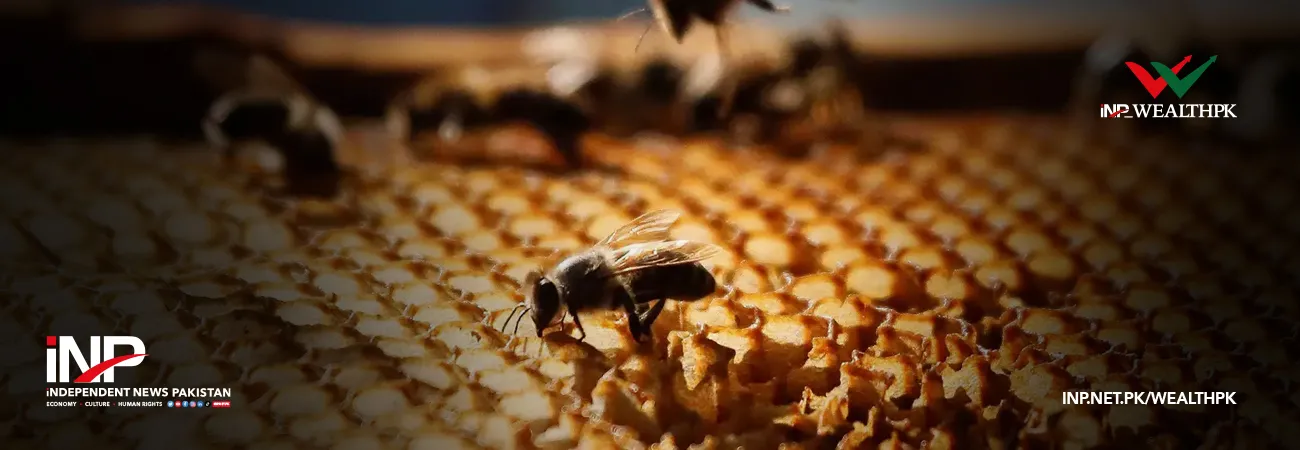INP-WealthPk
Faiza Tehseen
Pakistan can boost its natural honey production by replanting the areas denuded of honey bee flora and conserving the existing ones.

“Robust indigenous production will help Pakistan curtail honey imports, gain self-sufficiency and export the excessive quantities. Protection of bee flora also helps reduce climate change impacts. By improving the honey segment of agriculture, farmers and other stakeholders will also earn a sustainable income,” said Dr Muhammad Khalid Rafique, a scientific officer at the Honey Bee Research Institute (HBRI) of National Agricultural Research Centre (NARC). Talking to WealthPK, he said though Pakistan produced excellent quality honey, the floral sources were depleting at an alarming speed due to the impact of climate change and rapid urbanisation. “A lot of flora is abridged annually. If honey is harvested from one place this year, there is no guarantee that next year, it will be possible from the same place.” Rafique highlighted that construction of roads and other infrastructure had led to a reduction in honey bee flora. However, he said no serious efforts had been made to replant the areas denuded of trees. As a result, temperature increases and badly disturbs the ecology of the areas. “Modern developments are not bad, but protecting the ecology of an area is of paramount importance.”
He said honey bee flora varied according to the ecology of an area. “The generally occurring honey bee flora in Pakistan is sidr, acacia modesta, acacia nilotica, dalbergia sissoo citrus, clover, sunflower, Russian olive and brassica.” Honey bee flora-rich areas in Pakistan were the Potohar Valley, Karak, Kohat, Bannu, Dera Ismail Khan, Lakki Marwat, Mianwali, Talagang, Chakwal, Jhelum, Rawalpindi, Gilgit and Chitral. The NARC scientist called for concrete measures to protect the honey bee flora. “Areas cleared of vegetation to establish any infrastructure must be replanted to retain the flora. It will not only help save the environment and ecosystem but the number of honey bees will be continuously multiplied. Besides, plantation and awareness campaigns are necessary to boost this important sector,” stressed Khalid Rafique. The international honey market is poised to grow to $12.9 billion at a compound annual growth rate of 5.2% by the year 2030 from $8.58 in 2021. Pakistan can also get its share of profit from this market by increasing the quality of honey production. But the only source of quality natural honey is honey bees. They need their favourite flora for nectar-sucking to produce honey.
Credit: INP-WealthPk













